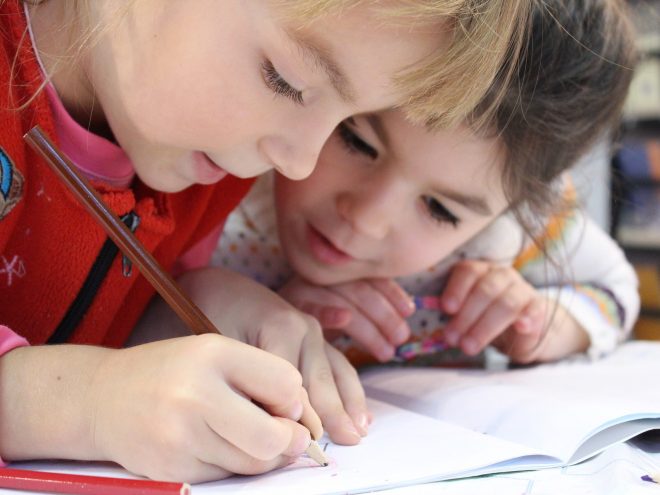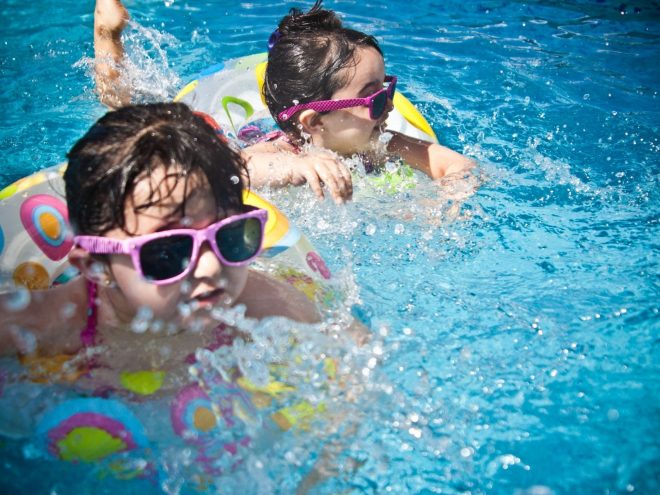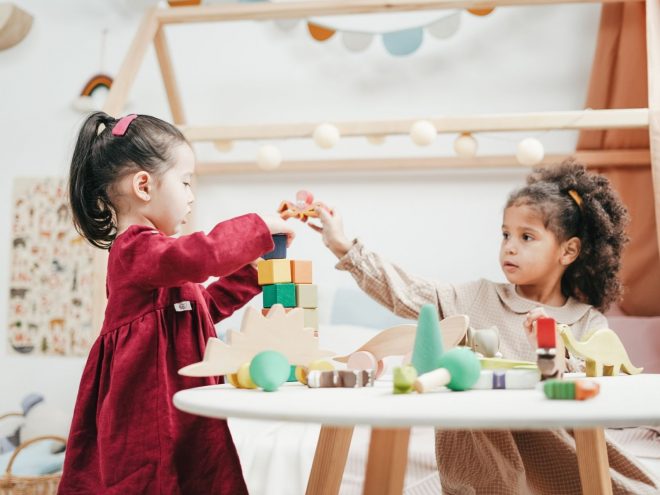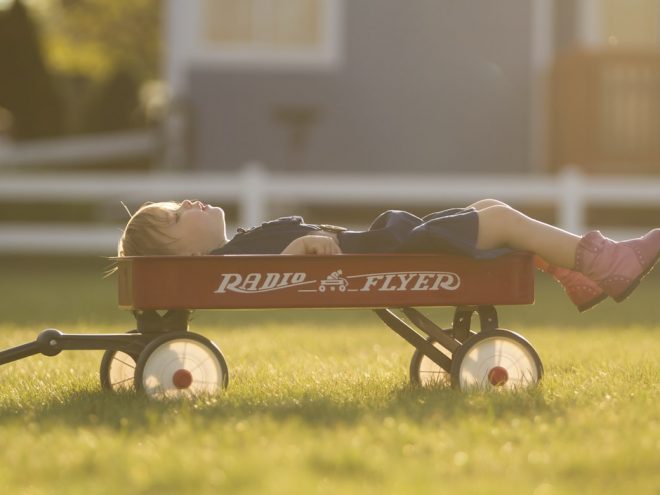On average, children spend six to nine hours per day in front of a screen. Whether it’s a tablet, TV, phone or another device, kids are disappearing into these devices and rarely ever heading outside to play. All this time indoors can have significant negative effects on their physical and mental development, especially infants and toddlers. Therefore, in order to support proper growth, parents must begin introducing more outdoor playtime. Here are just a few ways your kiddos will benefit from increased outdoor activity.
1. Improves Cognitive Function
Outside play is essential to proper brain development. From improving a child’s ability to learn to increasing their attention spans, unstructured playtime can be incredibly beneficial. Scientists have even found a link between play and better language skills — both receptive and expressive. Of course, these skills can help them be more productive, focused and communicative both now and later in life as they grow and become adults. Therefore, it’s important that you allow your kiddos free play outside on a regular basis.
2. Develops Motor and Sensory Skills
Additionally, outdoor play helps your kiddos develop motor and sensory skills. Inside, the toys and other items within a room or building limit children’s ability to use their senses. For instance, a TV only allows preschoolers the opportunity to utilize two senses — sight and sound. Outside, however, there’s no limit to what they can explore and experience. From jumping off tree stumps to swimming in rivers and smelling flowers, the great outdoors allows kids to use all their senses. Plus, as your little ones run, jump, skip and walk, they simultaneously improve their fine and gross motor skills. These may include reflexes, flexibility and balance. In most cases, indoor play doesn’t allow enough room for kids to practice these skills regularly.
3. Boosts Immunity
Exposure to sun, dirt and critters can also boost your little one’s immunity. In fact, many scientists believe that letting your kids dig their hands into mud, sand and your dog’s fluffy fur coat can even reduce their risk of developing asthma and allergies. It functions similarly to vaccines. Exposing children to small amounts of microbiota at a young age improves their bodies’ ability to fight infection when it strikes.
4. Promotes Social Development
At home, your kids are probably more likely to sit on their phones or tablets and engage with others through a screen. Ultimately, too much online communication can result in underdeveloped social skills, especially in toddlers. The outdoors, on the other hand, offers an escape from technology and promotes social development. Promote outdoor socialization and communication by arranging play dates with their friends at a local park or hosting a pool party.
5. Fosters Creativity
The outdoors is truly the ultimate play space, allowing kids to fully use their imagination and express creativity. For instance, your little one might stack blocks at home because they understand that those blocks are for building. However, they can use rocks and sticks to do the same thing. Often, this requires more imagination and ingenuity because they don’t always fit together perfectly or look like a toy car or Lego. Furthermore, most kids will begin to use their imaginations in new ways when in a different environment. Instead of playing house, they might imagine they’re Native Americans, pirates, explorers or fairies. This make-believe and internal storytelling fosters creativity that will stick with them their entire lives.
6. Teaches Appreciation for the Environment
Spending more time playing outdoors inevitably creates a fondness for the environment and the creatures living in it. This positive attitude towards the Earth often results in children taking better care of it as they grow and progress into adulthood. To ensure your child continues to prioritize the environment when they’re older, teach them as much as you can about the animals, plants and ecosystems you might see on your outdoor adventures.
7. Supports an Active Lifestyle
Likewise, kids who are active — indoors and outdoors — are more likely to develop and maintain a healthy lifestyle well into adulthood. This may be due to the fact that playing outside isn’t a punishing exercise for kids compared to something like lifting weights or running. Because they enjoy being outdoors, they’ll continue to do so. Of course, this lifestyle supports a healthy body and mind and prevents a multitude of diseases and illnesses.
Getting Your Kids Outside
Now that you’re aware of all of the amazing benefits of outdoor play, you’ll obviously want to get your kids outside more often. However, if they’re used to sitting in front of a screen in an urban neighborhood, sending them outdoors may be easier said than done. If they’re preschool age or older, odds are you won’t be able to carry them outside — at least not without a fight. Forcing them to play out there won’t do any good, either. Therefore, it’s best to consider their interests and craft outdoor experiences that they’ll enjoy. For instance, if they hate the idea of hiking but love a good treasure hunt, turn your walk into a scavenger hunt by keeping an eye out for birds and bugs. You might also try kayaking, rollerblading or another outdoor sport together. One of these activities is bound to spark your little one’s interest. When it does, they’ll be the ones begging you to go outside.





